16 September 2020 – Somalia is no stranger to emergencies. For decades, Somalis have passed down to younger generations their rich, vibrant culture, along with mechanisms to cope with all kinds of challenges they have faced over the years. Their resilience and Somalia’s health system have been tested yet again in the last 6 months ─ this time with the outbreak of coronavirus disease (COVID-19) in the country.
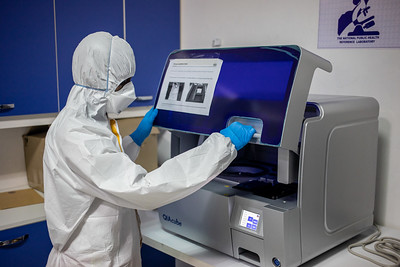 Even before 16 March 2020, when H.E. Fauziya Abikar Nur, the Federal Government’s Minister of Health, announced the first case of COVID-19 in the country, the United Nations agencies spearheaded by World Health Organization (WHO) provided substantial and timely support to the Federal Government of Somalia and its other Member States. This support allowed the country to prepare for what lay ahead. In February, public health measures for disease prevention, detection and response were significantly enhanced across the country. By early April, with support from WHO and other partners, the Ministry of Health had strengthened the capacity of 3 designated laboratories for COVID-19 testing. Since then, over 18 000 COVID-19 samples have been tested in these laboratories. WHO worked hand in hand with other United Nations agencies in the country, such as the International Organization for Migration (IOM), United Nations Children’s Fund (UNICEF), United Nations Development Programme (UNDP), United Nations Population Fund (UNFPA) and other national and international partners to improve preparedness, readiness and response to mitigate the early impact of COVID-19 outbreak.
Even before 16 March 2020, when H.E. Fauziya Abikar Nur, the Federal Government’s Minister of Health, announced the first case of COVID-19 in the country, the United Nations agencies spearheaded by World Health Organization (WHO) provided substantial and timely support to the Federal Government of Somalia and its other Member States. This support allowed the country to prepare for what lay ahead. In February, public health measures for disease prevention, detection and response were significantly enhanced across the country. By early April, with support from WHO and other partners, the Ministry of Health had strengthened the capacity of 3 designated laboratories for COVID-19 testing. Since then, over 18 000 COVID-19 samples have been tested in these laboratories. WHO worked hand in hand with other United Nations agencies in the country, such as the International Organization for Migration (IOM), United Nations Children’s Fund (UNICEF), United Nations Development Programme (UNDP), United Nations Population Fund (UNFPA) and other national and international partners to improve preparedness, readiness and response to mitigate the early impact of COVID-19 outbreak.
Swift response to the outbreak
WHO and its partners deployed 44 well-trained rapid response teams in March, now almost doubled to 73, to detect cases and to trace their contacts early on in the outbreak. More than 3300 frontline health workers have visited over 1.5 million households in the last 6 months, reaching approximately 6 million people, in 49 districts across the country. They played a critical role in reducing transmission and slowing the trajectory of the epidemic.
Dr Naima Abdullahi, WHO Public Health Emergency Officer for Banadir, is one of the lucky Somalis who gets to serve her country while fulfilling her dream.
“Since COVID-19 was confirmed in Somalia, I have been working in an isolation centre, at De Martino Hospital,” says Dr Naima. “My work includes providing support to Federal Ministry of Health teams to conduct COVID-19 tests, trace contacts, build capacity and manage cases. I also support with interpersonal communication, collecting data and conducting community awareness activities.”
Since I was a child, it was my dream to work for the United Nations, because my mother worked as a nurse at that time. Every time I saw her help children and women in our village, I used to tell her that I wanted to be like her,” adds Dr Naima.

Raising awareness to save lives
In efforts to increase awareness around COVID-19, in collaboration with WHO, UNICEF and other partners, the Somali Federal Government rolled out a public health campaign to raise awareness about COVID-19 in communities across the country. Key messages were shared using radio, billboards, face-to-face training and social media channels. Innovative ideas, including using chatbots, in Somali, on WhatsApp and Facebook Messenger, helped to spread awareness on self-care among online audiences.
To analyse epidemiological information on the COVID-19 outbreak in Somalia, the Federal Ministry of Health and WHO have been collecting information on COVID-19 prevalence across Somalia and publishing it in the form of a weekly situation report. They have also been updating an online dashboard on a daily basis.
Lauding the frontline health workers
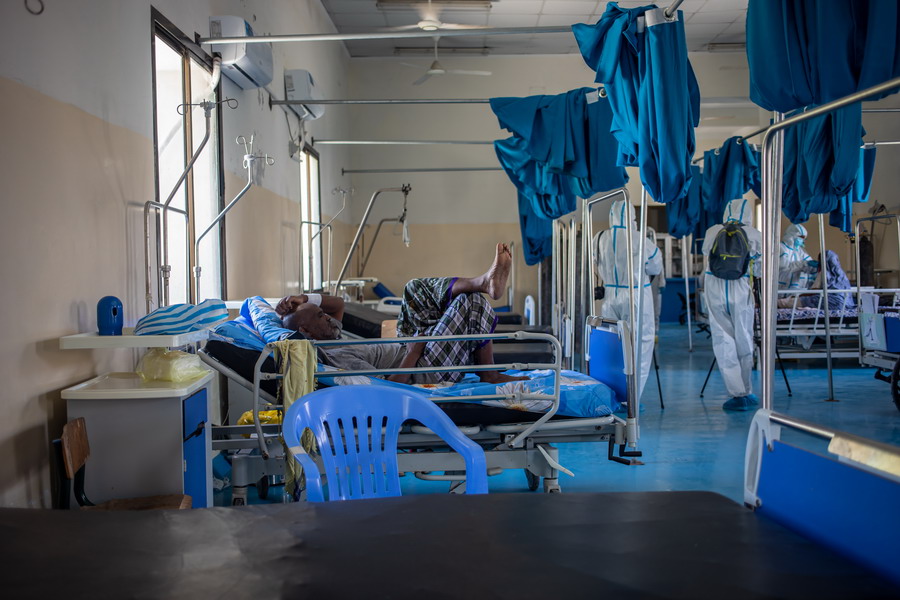
Health workers across the country have worked tirelessly to prevent the spread of COVID-19 and provide support to infected people. Despite over 250 health care workers being infected by COVID-19, their commitment, dedication, and tireless efforts in saving lives and reducing transmission in the last 6 months have earned recognition from all.
“The effort that Somali health workers have made to contain the pandemic and help those affected by the virus has literally saved lives. This heroic work is a testament to their commitment and dedication, often under extremely challenging conditions,” said the UN Secretary-General’s Special Representative for Somalia, James Swan.
“They achieved these life-saving outcomes despite a very fragile and weakened health system in Somalia – the result of 3 decades of conflict, protracted crisis and repeated humanitarian emergencies. The results show their fortitude, as well as the importance of the Somali authorities and national and international partners working together,” he added.
Teaming up to rebuild a robust health system
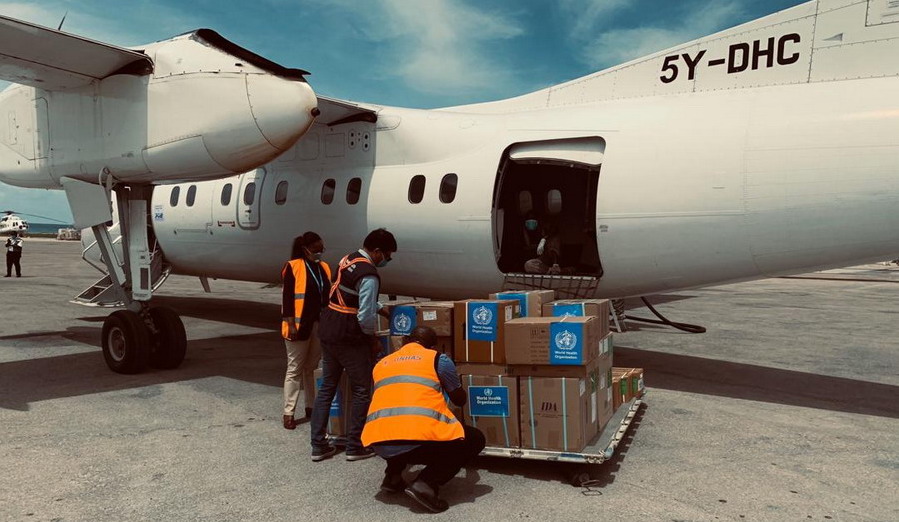
Close collaboration among United Nations agencies, and with health authorities, has helped mount a strong response to the outbreak. Despite the nationwide lockdown and suspension of commercial flights, the UN Assistance Mission in Somalia (UNSOM), World Food Programme (WFP) and WHO partnered to collect, transport and ship COVID-19 samples from remote and inaccessible parts of the country and hand over these samples to the designated testing laboratories.
Within the first 6 months of the outbreak, WFP transported 3279 samples collected from remote and inaccessible areas, shipped over 10 000 sample collection kits and 17 790 items of personal protective equipment throughout the country in support of the Federal Government.
Additionally, IOM, UNFPA, UNICEF and WHO supported 18 isolation centres across Somalia, providing them with ventilators, oxygen concentrators, intensive care unit beds and other equipment required for optimizing patient care. Over the last 6 months, over 560 patients received treatment and care in these isolation centres.
“We are all in this fight together. This unprecedented event required an unprecedented response. COVID-19 has affected all humanity and its impact on vulnerable countries like Somalia will be felt long after the outbreak ends. Acting as “One UN”, we responded in a timely, integrated and coordinated manner. The UN team in Somalia will continue to support the Government in protecting the most vulnerable Somalis and helping the health system recover from this crisis,” said Mr Adam Abdelmoula, Deputy Special Representative of the UN Secretary-General, and UN Resident Coordinator and Humanitarian Coordinator for Somalia.
Despite the ongoing pandemic, UNICEF, UNFPA and WHO continued to support the Federal Government to scale up essential health services in order to mitigate the negative impact of COVID-19 on health gains. The successful organization and completion of mass immunization campaigns against measles and polio in Banadir region targeting over 400 000 children under 5 years of age was a striking example of how United Nations agencies are supporting the Government to ensure that health gains are not reversed.
The outbreak is not over
“Even though we have seen a drop in the number of cases and deaths recently, the outbreak is far from over. We applaud the dedicated Somali health workers who continue to stand tall in the face of mounting challenges to save lives from COVID-19 and other diseases. I would like to remind everyone that no one is safe until everyone is safe. I urge Somali communities to do their part responsibly and sensibly and exercise caution to avoid getting infected by COVID-19. To our donor community, I extend our sincere gratitude for the support provided. We will continue to work together with our partners to strengthen the country’s public health system within the goal of achieving universal health coverage and building back better,” said Dr Mamunur Malik, WHO Somalia Representative.
The challenge for Somalia now is to continue to keep health workers like Dr Naima and communities across the country safe from COVID-19, monitor the transmission risk and prevent further spikes while maintaining routine and other emergency healthcare services for everyone, everywhere.
Related links
Somalia COVID-19 dashboard
COVID-19 information notes
COVID-19 monthly infographics
Press releases
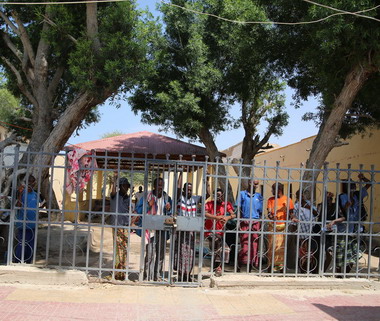





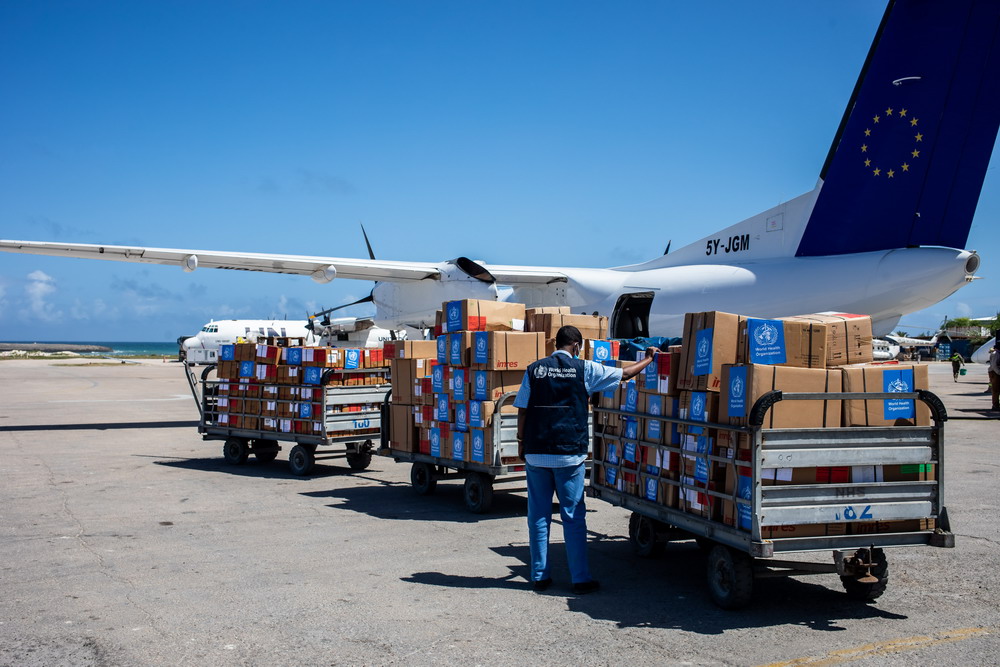
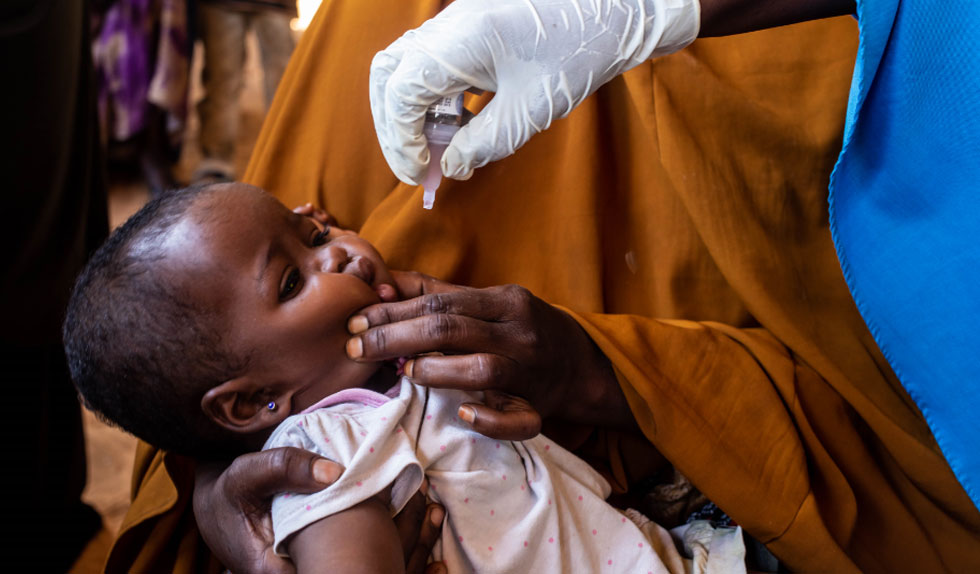
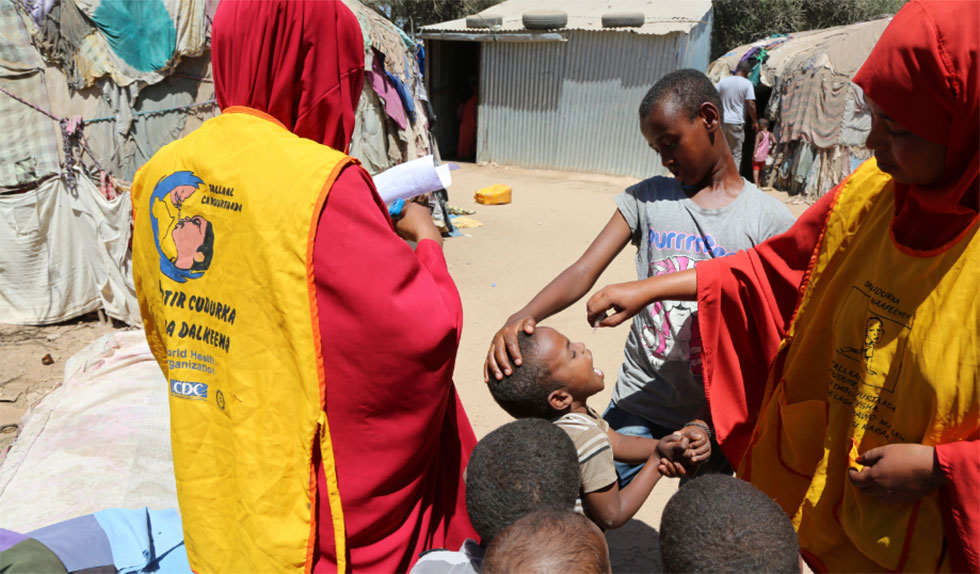











 Even before 16 March 2020, when H.E. Fauziya Abikar Nur, the Federal Government’s Minister of Health, announced the first case of COVID-19 in the country, the United Nations agencies spearheaded by World Health Organization (WHO) provided substantial and timely support to the Federal Government of Somalia and its other Member States. This support allowed the country to prepare for what lay ahead. In February, public health measures for disease prevention, detection and response were significantly enhanced across the country. By early April, with support from WHO and other partners, the Ministry of Health had strengthened the capacity of 3 designated laboratories for COVID-19 testing. Since then, over 18 000 COVID-19 samples have been tested in these laboratories. WHO worked hand in hand with other United Nations agencies in the country, such as the International Organization for Migration (IOM), United Nations Children’s Fund (UNICEF), United Nations Development Programme (UNDP), United Nations Population Fund (UNFPA) and other national and international partners to improve preparedness, readiness and response to mitigate the early impact of COVID-19 outbreak.
Even before 16 March 2020, when H.E. Fauziya Abikar Nur, the Federal Government’s Minister of Health, announced the first case of COVID-19 in the country, the United Nations agencies spearheaded by World Health Organization (WHO) provided substantial and timely support to the Federal Government of Somalia and its other Member States. This support allowed the country to prepare for what lay ahead. In February, public health measures for disease prevention, detection and response were significantly enhanced across the country. By early April, with support from WHO and other partners, the Ministry of Health had strengthened the capacity of 3 designated laboratories for COVID-19 testing. Since then, over 18 000 COVID-19 samples have been tested in these laboratories. WHO worked hand in hand with other United Nations agencies in the country, such as the International Organization for Migration (IOM), United Nations Children’s Fund (UNICEF), United Nations Development Programme (UNDP), United Nations Population Fund (UNFPA) and other national and international partners to improve preparedness, readiness and response to mitigate the early impact of COVID-19 outbreak. 

